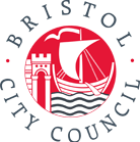Child and adolescent anxiety could be linked to later alcohol problems
New research led by the University of Bristol has found some evidence that children and adolescents with higher levels of anxiety may be at greater risk of developing alcohol problems.
- 20th March 2019
New research led by the University of Bristol has found some evidence that children and adolescents with higher levels of anxiety may be at greater risk of developing alcohol problems. However, the link between anxiety and later binge drinking and later frequency and quantity of drinking was more inconclusive.
The study published in Addiction, was carried out by the University’s Tobacco and Alcohol Research Group (TARG) part of the School of Psychological Science and MRC Integrative Epidemiology Unit (MRC IEU).
Many studies have investigated the relationship between anxiety and alcohol use, but the evidence has been unclear. Some studies have found higher anxiety is linked to greater alcohol use, whereas other studies have found anxiety is linked to lower alcohol use, or they have found no association.
The researchers carried out a systematic review of 51 prospective cohort studies from 11 countries [United States, Germany, Finland, UK, Netherlands, Australia, Taiwan, Canada, New Zealand, Sweden and Norway] to explore whether child and adolescent anxiety is linked to later alcohol use and alcohol use disorders.
Forty‐six studies included males and females, four had an all‐male sample and one had an all‐female sample. Thirty measures assessed anxiety and 40 measures assessed alcohol use. The study sample sizes ranged from 110 to 11,157 participants. Anxiety exposure ages ranged from three to 24 years, and alcohol outcome ages ranged from 11 to 42 years.
The study found some evidence of a link between child and adolescent anxiety and later alcohol use disorders. However, associations of anxiety with later drinking frequency, quantity and binge drinking were more inconsistent.
Maddy Dyer, PhD student in the School of Psychological Science’s Tobacco and Alcohol Research Group, who led the research said:
“Our findings indicate that young people with higher anxiety may have a greater risk of developing alcohol problems. Further research is needed to understand why there are differences in associations for alcohol consumption levels versus problematic use, and to establish which individuals with anxiety develop alcohol problems. This could lead to improvements in personalised interventions.”
The research was funded by the MRC and Alcohol Research UK (MR/L022206/1), MRC Addiction Research Clinical Training programme (MARC), MRC Integrative Epidemiology Unit (IEU), The Centre for the Development and Evaluation of Complex Interventions for Public Health Improvement (DECIPHer), NIHR School of Public Health Research, NIHR Health Protection Research Unit in Evaluation, and NIHR Bristol Biomedical Research Centre. Joint funding was received from the British Heart Foundation, Cancer Research UK, Economic and Social Research Council, Medical Research Council, the Welsh Government and the Wellcome Trust, under the auspices of the UK Clinical Research Collaboration.
Paper
‘Associations of child and adolescent anxiety with later alcohol use and disorders: A systematic review and meta-analysis of prospective cohort studies’ by Maddy Dyer, Kayleigh Easey, Jon Heron, Matthew Hickman, and Marcus Munafò in Addiction






